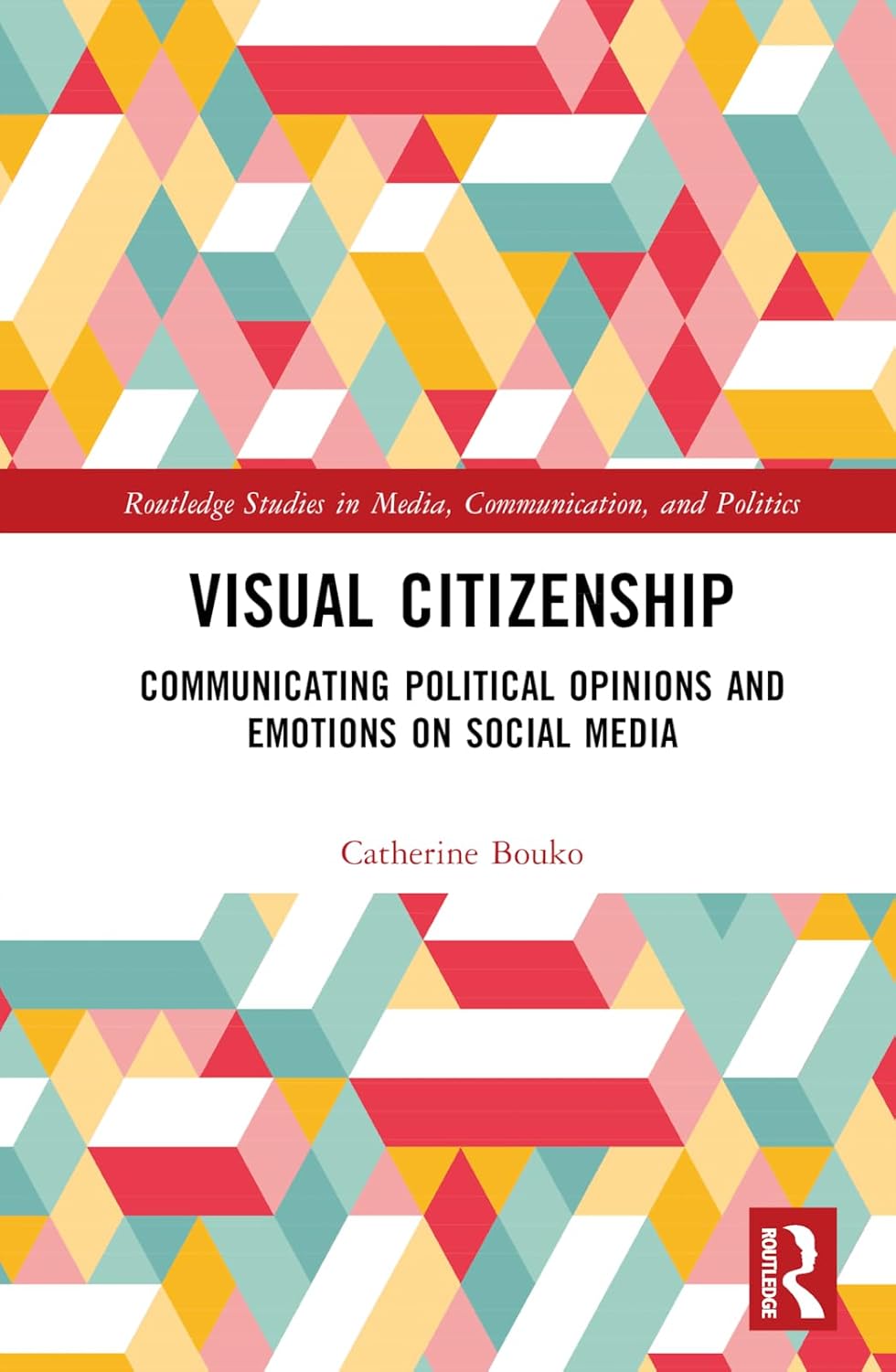Book Review:
Visual Citizenship: Communicating political opinions and emotions on social media
Visual Citizenship: Communicating political opinions and emotions on social media
Catherine Bouko’s Visual Citizenship is concerned with a particularly mundane level of online image-based political communication. By dismissing accusations of online engagements with politics as mere “slacktivism” (p. 17) or as “weak substitutes” (p. 21), Bouko blurs (or: pixelates) the division between what is considered worthwhile, sensible deliberation and what is often disregarded as flippant sharings of opinions and more generally just entertainment. As such, what Bouko makes explicitly clear from the outset is that this study takes seriously the way citizens “express their civic voice in everyday political talks on social media” (p. 29). Such expressions could include anything from memes and selfies to hashtags and image captions. For Bouko, these are all modes of legitimate political engagement. This common level of political expression that is often-overlooked, disregarded or undermined in academic research is what Bouko explicitly calls, albeit infrequently, “everyday visual citizenship” (p. 11).
Curiously, despite this titular term being the concept leading the book, it is not something that is laboured over, picked at or risked defining. It is not logged in the book’s index, either, and apparent synonyms such as “civic engagement”, “political expression” and “citizenship practice” seem to be unproblematically interchangeable. This suggests that the primary concern of the study is not to establish the critical or academic language necessary to address “visual citizenship”. Rather, it seems the focus is on the challenges of making precise and reliable expressions of visual citizenship in terms of statistical data. That is to say, Visual Citizenship reads as most concerned with the finicky documentation of citizens being political in banal visual ways more than it does as a critical framing of the conditions of possibility that makes that politically visual stuff a matter of concern. Perhaps, this approach is taken because Bouko is not claiming to be unearthing something previously unknown. Rather, she is offering a new optic on something that exists in plain sight but lacks careful attention. As Bouko observes, “[w]hile citizens’ expressions in the context of social movements and concrete political events have gained much scholarly attention, the practices of citizens’ civic expression elsewhere remain largely understudied” (p. xix).
Read the full review here.
Read the full review here.
Image courtesy of Routledge.
